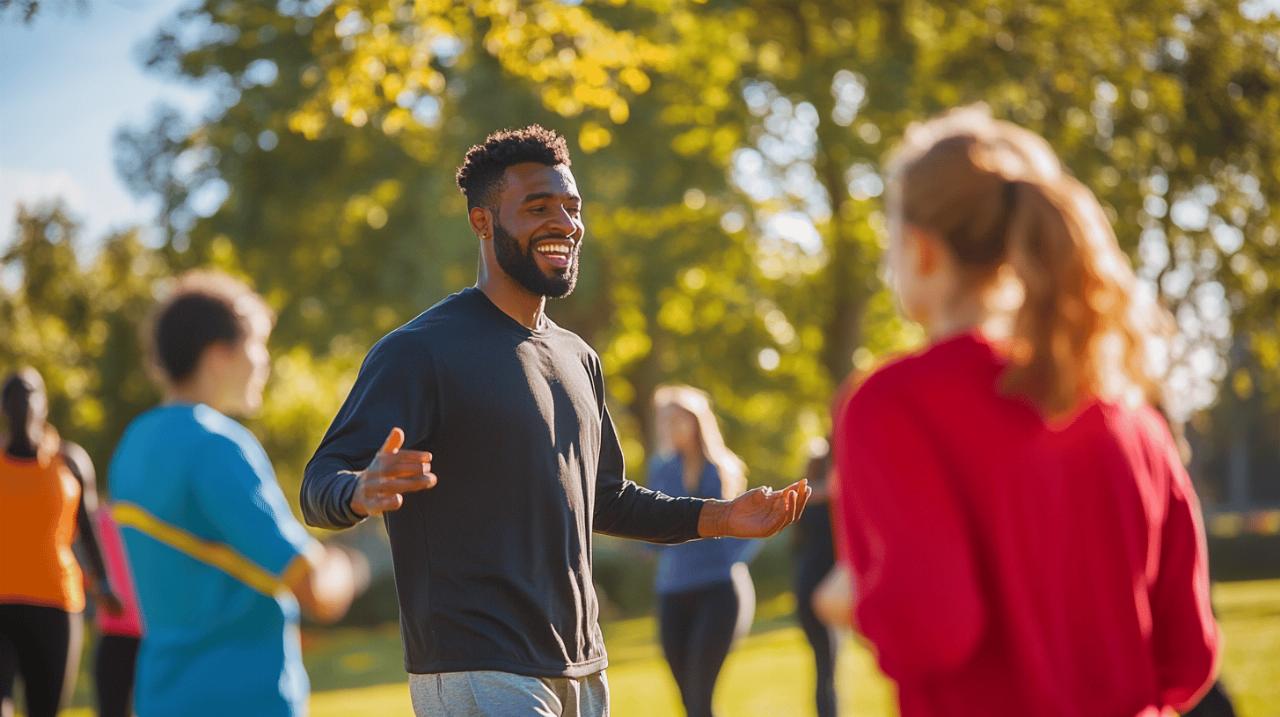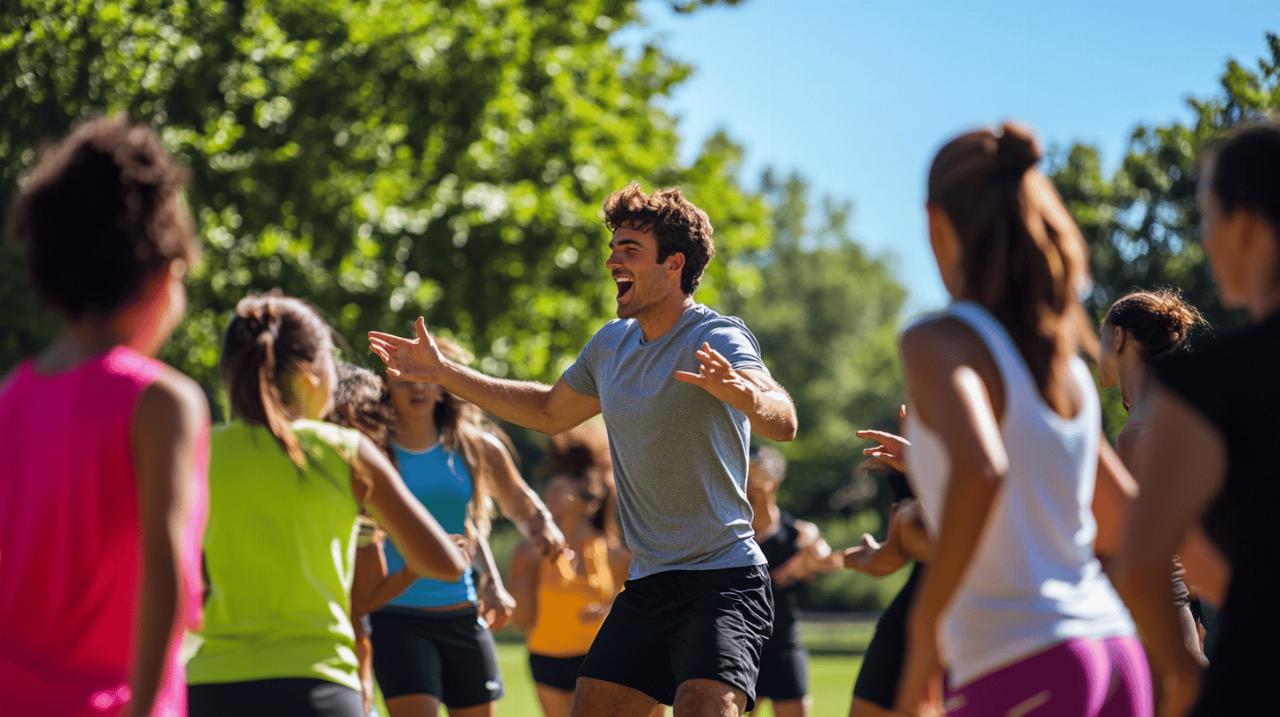Embarking on a career as a sports educator offers an exciting blend of passion for physical activity and the joy of teaching others. This comprehensive guide explores the diverse pathways available for those looking to enter the sports education sector, with a special focus on continuing professional development resources that can help you excel in this dynamic field.
Understanding Career Paths in the Sports Industry
Defining the Role of a Sports Educator
A sports educator plays a crucial role in developing physical literacy and sporting skills across various settings. Unlike other sports professionals, educators specifically focus on teaching fundamentals and building confidence in participants of all abilities. They work primarily in schools, colleges, and community settings, implementing structured learning programmes that align with educational standards and Continuing Professional Development frameworks. Sports educators must possess excellent communication abilities, leadership qualities, and a thorough understanding of both pedagogical principles and sport-specific knowledge.
Required qualifications and training
The journey toward becoming a qualified sports educator typically involves acquiring recognised certifications and practical experience. In the UK, aspiring sports educators should consider obtaining qualifications through organisations affiliated with Sports Governing Bodies and professional standards organisations like CIMSPA. Many educators begin with a foundation in physical education or sports science, followed by teacher training programmes that emphasise curriculum planning and delivery techniques. These qualifications ensure educators can meet professional standards while providing high-quality instruction that aligns with OFSTED requirements for schools and other educational settings.
Essential training programmes for sports professionals
Bpjeps and staps qualifications explained
Two prominent qualification pathways for sports professionals include the BPJEPS (Brevet Professionnel de la Jeunesse, de l'Éducation Populaire et du Sport) and STAPS (Sciences et Techniques des Activités Physiques et Sportives) programmes. These comprehensive training courses provide the theoretical knowledge and practical experience necessary for a career in sports education. While these qualifications have French origins, they represent the type of structured educational pathways available to aspiring sports educators. In the UK context, similar qualifications are offered through sportscotland and other national bodies, providing foundational knowledge in sports science, teaching methodologies, and practical application.
Building practical skills through training
Beyond formal qualifications, aspiring sports educators benefit immensely from ongoing learning opportunities that build practical teaching skills. Organisations such as Sports Coaching Group offer six-week CPD Support Programmes that include coach-led sessions, shared delivery approaches, and teacher-led sessions with constructive feedback. These programmes follow an 'Enjoy, Improve, Achieve' ethos, ensuring educators can engage participants effectively while promoting skill development. Additionally, mentoring schemes pair novice educators with experienced professionals, guiding them from assistant roles to confidently leading sessions independently. This practical training proves invaluable for developing the real-world competencies needed in sports education settings.
Comparing different sports career options
Sports educators vs coaches: key differences
While sports educators and coaches share a passion for physical activity, their roles differ significantly in focus and execution. Sports educators primarily work within educational frameworks, emphasising broad skill development across multiple sports and activities. They typically work with diverse groups of varying abilities, focusing on participation and fundamental movement skills. Coaches, conversely, often specialise in performance improvement for specific sports, frequently working with athletes or teams aiming for competitive success. Both careers require excellent communication skills and sport knowledge, but educators must also understand curriculum planning and educational standards, while coaches might focus more intensively on technical and tactical aspects of their sport.
Business roles: sports agents and community monitors
The sports industry also offers business-oriented career paths such as sports agents and community monitors. Sports agents manage the professional interests of athletes, negotiating contracts and handling business affairs. This role demands strong negotiation skills, legal knowledge, and business acumen. Community monitors, alternatively, work at grassroots levels promoting physical activity and wellbeing across diverse populations. They design and implement community programmes that encourage participation in sport and physical activity, often working with local authorities or charitable organisations. These roles demonstrate the breadth of opportunities within the sports sector beyond direct teaching or coaching responsibilities.
Career development and job market outlook
Employment opportunities in various settings
The job market for sports educators remains robust, with opportunities spanning educational institutions, leisure facilities, and community organisations. Schools require physical education specialists who can deliver the national curriculum while meeting OFSTED standards. Sports clubs and community organisations seek educators who can develop engaging programmes for diverse participants. The myCPD Portal and similar platforms help professionals track their development and identify emerging opportunities in the sector. Sport Structures and similar consultancies offer education and training courses that can further enhance employability. For those with entrepreneurial inclinations, establishing independent coaching programmes or specialised training services presents additional career pathways.
Freelance vs organisational employment considerations
When building a career in sports education, professionals must consider whether freelance work or organisational employment better suits their goals and circumstances. Organisational roles typically offer stability, structured progression paths, and integrated CPD opportunities. Institutions like sportscotland provide ongoing learning opportunities for employed coaches and educators. Conversely, freelance sports educators enjoy greater flexibility and potential for diverse experiences across multiple settings. They must, however, proactively manage their professional development, often through self-directed learning and independently sourced training. Freelancers may benefit from apprenticeship programmes offered by organisations like Sportscape Education as stepping stones toward establishing their independent practice. Regardless of employment structure, maintaining comprehensive CPD records demonstrates commitment to professional excellence.
Continuing professional development resources for sports educators
 For sports educators across the UK, ongoing learning and self-improvement are essential regardless of experience level. Proper Continuing Professional Development (CPD) not only keeps your skills sharp but ensures you're delivering the highest quality physical education and coaching to your participants. With numerous platforms and opportunities available, staying current with best practices has never been more accessible.
For sports educators across the UK, ongoing learning and self-improvement are essential regardless of experience level. Proper Continuing Professional Development (CPD) not only keeps your skills sharp but ensures you're delivering the highest quality physical education and coaching to your participants. With numerous platforms and opportunities available, staying current with best practices has never been more accessible.
Key cpd platforms and learning opportunities
Several organisations provide valuable CPD resources for sports educators. sportscotland offers diverse learning opportunities focused on coaching, tutoring, assessing and leadership skills. Their programme is designed to support educators at all stages of their careers, with sport-specific courses available through relevant Sports Governing Bodies.
The Sports Coaching Group delivers high-quality CPD through their 'Enjoy, Improve, Achieve' methodology. They offer two primary approaches: a comprehensive Six-week CPD Support Programme featuring coach-led sessions with structured feedback, and targeted Twilight or INSET Day CPD sessions designed to upskill staff while meeting National Curriculum standards. Their mentoring scheme pairs educators with experienced coaches who guide teachers from assistant roles to confidently leading sessions independently.
For those seeking more structured learning, the myCPD Portal provides a centralised platform to manage your CPD requirements and track progress. This tool is particularly useful for documenting various types of professional development, whether structured (formal courses and workshops), reflective (analysing coaching videos), or self-directed (reading articles and educational materials).
Meeting professional standards through cimspa and sport structures
Professional bodies play a crucial role in establishing and maintaining standards for sports educators. CIMSPA (Chartered Institute for the Management of Sport and Physical Activity) requires members to engage in regular CPD activities to maintain their professional standing. Meeting these standards signals your commitment to excellence and helps differentiate you in a competitive job market.
Sport Structures, a leading sport education consultancy, offers specialised CPD courses for sports educators looking to advance their careers. Their online learning platform provides accessible training across numerous areas of expertise, and their consultancy services cover vital topics like Equality, Diversity and Inclusion (EDI), leadership, and governance in sport.
Beyond formal qualifications, Sport Structures offers apprenticeship programmes in sports coaching, community activation, and business administration—providing practical pathways for career development. Their partnerships with national governing bodies and educational institutions ensure their training aligns with current industry demands and best practices.
For school-based sports educators, curriculum planning support is available through organisations like Sports Coaching Group, who provide lesson plan templates and focused guidance for PE subject leaders in line with OFSTED recommendations. This targeted support helps ensure your teaching meets regulatory requirements whilst delivering engaging physical education.





